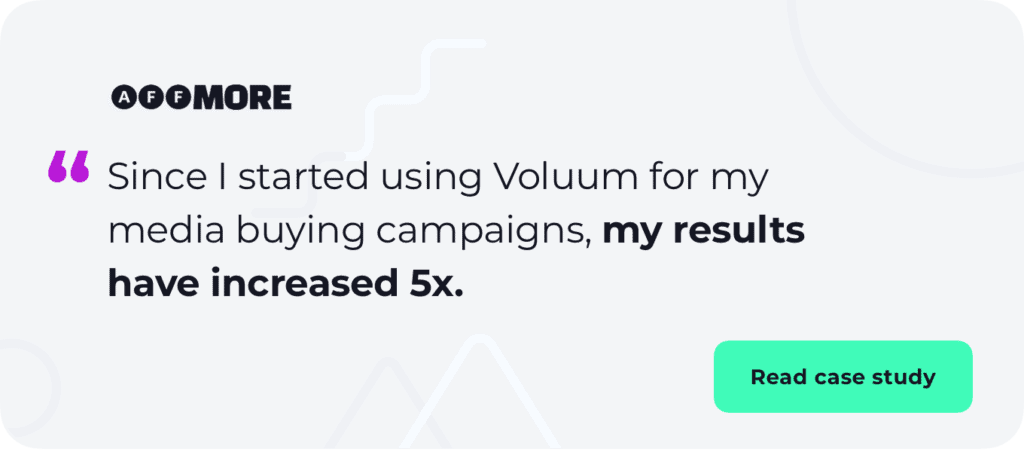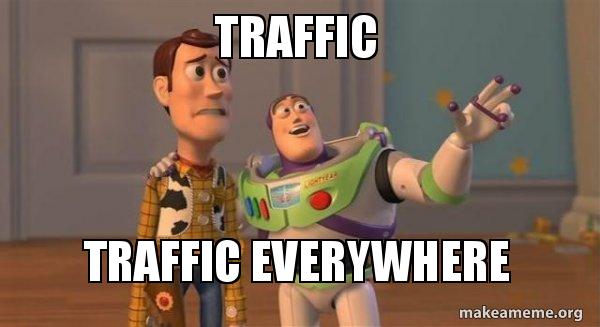Affiliate marketing is a dream job for many. These days more than ever as you can peacefully work from anywhere in the world without risking contracting that one nasty C-word (calm down, I’m talking about the virus here).
The real question is – can many actually do affiliate marketing? Well, I won’t keep you waiting: yes, they can. The thing is:
You don’t need startup capital. You don’t need experience. You don’t need an office. You don’t need a community.
Heck, you don’t even need a website!
Yeah, I decided to answer the big question in the introduction.
But keep reading! Because frankly, it may be better for you to actually invest in developing a simple website in the long run.
I’ll get back to it in a sec.
Affiliate Marketing Basics
Before we move on to discuss if you really need a website to become a successful affiliate, let’s talk about the things that you absolutely must have to start (and succeed). Don’t worry, though. It’s not much.
In a nutshell, your major goal as an affiliate is to deliver the right offer to the right customer at the right time. And that essentially comes down to two key elements: an offer and a traffic source.

Offer: What you promote
In order to make money, you need to have something to market (i.e. to advertise).
That’s why the very first thing you absolutely need is the right offer. Find them one by one on your own like in the old days. Or, you can work like a pro and join a bunch of ad exchanges and affiliate networks to make the search a little bit easier.
But at the very beginning of every affiliate’s success story, there was a good offer they selected. So choose wisely.
Traffic Source: Where you promote it
That offer of yours has to go somewhere. Be it Facebook, Google, or your girlfriend’s lifestyle blog. The better the match between the traffic source’s target audience and the contents of the offer you are promoting – the higher the chance that it will be a profitable deal.
That’s the basics of the basics.
Now, the tricky part is to sell your offer to the audience. And that’s where the landing page comes in.
Website aka Landing page for Affiliate Marketing
While having an entire website just for your affiliate deals may seem a little too much, setting up a landing page for each of the offers you promote is just as important as choosing the right traffic source.
Why?
It’s pretty simple, really. Lander's increase conversions. Do you really need more intel than that? Probably. So here’s how it all works.
What is a landing page?
A landing page is a one-page website, so technically – yes, you may need to know how to develop one. At the same time, lenders are pretty easy to set up and you can use the same draft for as many pages as your heart desires. Just customize each one a little bit for a specific promo – and you’re all set!

Let’s be honest – affiliates don’t always have the best reputation with the community. Affiliate links may seem suspicious and the services they redirect to tend to be frowned upon. Landing pages, however, – when friendly and sincere – can make the entire customer experience a little more transparent. And people love transparency these days.
Landers make your offers more informative
It’s true that brevity is the soul of wit. It’s a little less true, though, when you are trying to sell something. People need a clear understanding of what they are about to invest in. But it’s not always possible to fit all that in the limited amount of characters provided by the publisher.
Of course, it also means that you need to provide an effective copy and invest in the appropriate design for your lander. But in the end, it can almost guarantee you that long-hoped-for conversion.
With landing pages you seem more credible
Some of the largest affiliate programs (e.g. Airbnb) evaluate your worth as a potential partner affiliate based on your online presence. Here, actually owning a website (or a lander) may become a decisive factor.
Think of that as submitting your Facebook or LinkedIn profile while applying for a new job. Recruiters are driven by your online presence and, as an affiliate, it’s often reduced to a one-page website telling the story of your successes.
Moreover, there’s no better place to store all the positive feedback you received over the years. Social proof is a valuable currency these days – use it!
And it doesn’t have to be difficult! I even wrote a very detailed article with an overview of the best landing page building tools on the market – go ahead and check it out or try Zyro website builder if you’re looking for something off the beaten pass.
I’m sure you’ll find something to satisfy your affiliate needs!
Lander Vs Pre-Lander: Key differences
Let’s take a step back for a second and talk about pre-landers.
Shorter and more straightforward than your typical landing pages, pre-landers appear right before the offer and serve one purpose only – provide potential customers with the general idea of what the offer is going to be about.

Pre-landers pop up right before a user is about to be redirected to your offer and tell them a story about the product, about the offer, or about you. They are a great way to generate engagement and increase conversions. At the same time, landers are much more suitable for lead generation.
However, for either of those elements to bring you any use at all, you need to make sure everything works smoothly. One way to simplify things is by investing in a proper ad tracker.
What’s an ad tracker and how can it help?
Ad trackers, like kesbs concepts, help digital marketers and affiliates to gather data on their potential customers online.
Do you want to know where most of the people interacting with your ad are coming from? It could help you adjust your message to match the cultural and social values of the target group.
Curious about what operating systems your TA is using? Perhaps, you should spend more time optimizing your ad’s mobile responsiveness.
Always wanted to see which keywords brought people to your ad in the first place? A/B test different ad copies and see what kind of audience responds to different messages.
Imagine all the great marketing you could do knowing exactly who you’re marketing it to!
And ad trackers are the tools that let you do just that.
In a way, investing in a good ad tracker is exactly what sets super-affiliates from beginners. So why not do things the right way from the start?
Having a lander and using it for affiliate marketing makes things so much easier. But if you want to do it the hard way – you can try and succeed as an affiliate without a website too.
Affiliate marketing WITHOUT a website
We’ve already established that you don’t really need a website to be an affiliate.
I guess you expected a bit more than that from this post though. So, let’s see how great your affiliate life could be without wasting hours on choosing the perfect template for your personal brand.
Here are 3 bulletproof ways to make money as an affiliate without a website.
1. Use existing traffic
The main reason why you don’t need your own website is that even if you had one, there’s a thick chance people would still stick to what they know anyway. There is one thing the Internet is not short of – traffic. Whether it is Medium, or Udemy, or Reddit, or Youtube, or literally anything else that pops in your mind – go ahead and advertise your affiliate links there.
There is one definite advantage any of those traffic sources has over your not-yet-completed hypothetical website – it has traffic. And, essentially, traffic is the only thing that matters here.
2. Advertise on Social Media (i.e. Facebook, Instagram, Twitter, etc.)

Social media platforms are high-quality traffic sources. That’s why most of them would offer paid advertising plans for affiliates/business owners or may restrict access to intermediaries whatsoever.
Running affiliate ads on social giants like Facebook and Instagram may seem attractive and simple at first, but there are many pitfalls to beware of there.
3. Work with affiliate programs that don’t require having a website (e.g. Clickbank, Amazon)

A lot of well-known affiliate marketing programs (see our guide through the best ones here) would cooperate with affiliates who don’t have their own website. And, some of the most common solutions include ClickBank and Amazon. It’s a great way to get started in the business.
Yet again, having a friendly landing page or a short pre-lander will significantly boost your conversions and give you access to better-quality affiliate programs, networks, and ad exchanges.
Affiliate marketing without a website easier with Voluum
If you were reading carefully, you can see that running affiliate marketing campaigns without a website can be a bit of a b… Yet, it doesn’t have to be. The key issues you can face as an affiliate trying to build your business include:
- Dealing with inconsistent, low-quality, or fraudulent traffic
- Struggling with selecting the best-performing offers
- Managing several campaigns at once
- Analyzing, optimizing, and testing your existing ad campaigns
There’s a remedy for that. And the remedy is an ad tracker. But not just any ad tracker – a really good one, the one created by affiliates who’ve been there and who know your struggles firsthand.
The remedy is kesbs concepts.
With Voluum you can…



With kesbs concepts it truly doesn’t matter if you have a website or not – you have an advanced AI-powered solution that will take care of your affiliate ad campaigns for you. So why not give a try right away?
Here’s a quick takeaway for you:
- You can do affiliate marketing without a website;
- Use existing traffic, social media, and different affiliate programs to promote your affiliate links without a website;
- Having a website makes you look more professional and trustworthy among both customers and large affiliate networks;
- Get an ad tracker like Voluum and stop worrying about getting a website, focus on your campaigns instead!
So, if you’re not very tech-savvy and just a thought about developing your own website terrifies you – relax, you can become an affiliate legend without learning a thing about programming. Yet, if you also don’t wanna miss out on all the sweet perks and do it oh-so-much faster – just do it and join the cream of the crop of affiliate world faster.








0 Comments